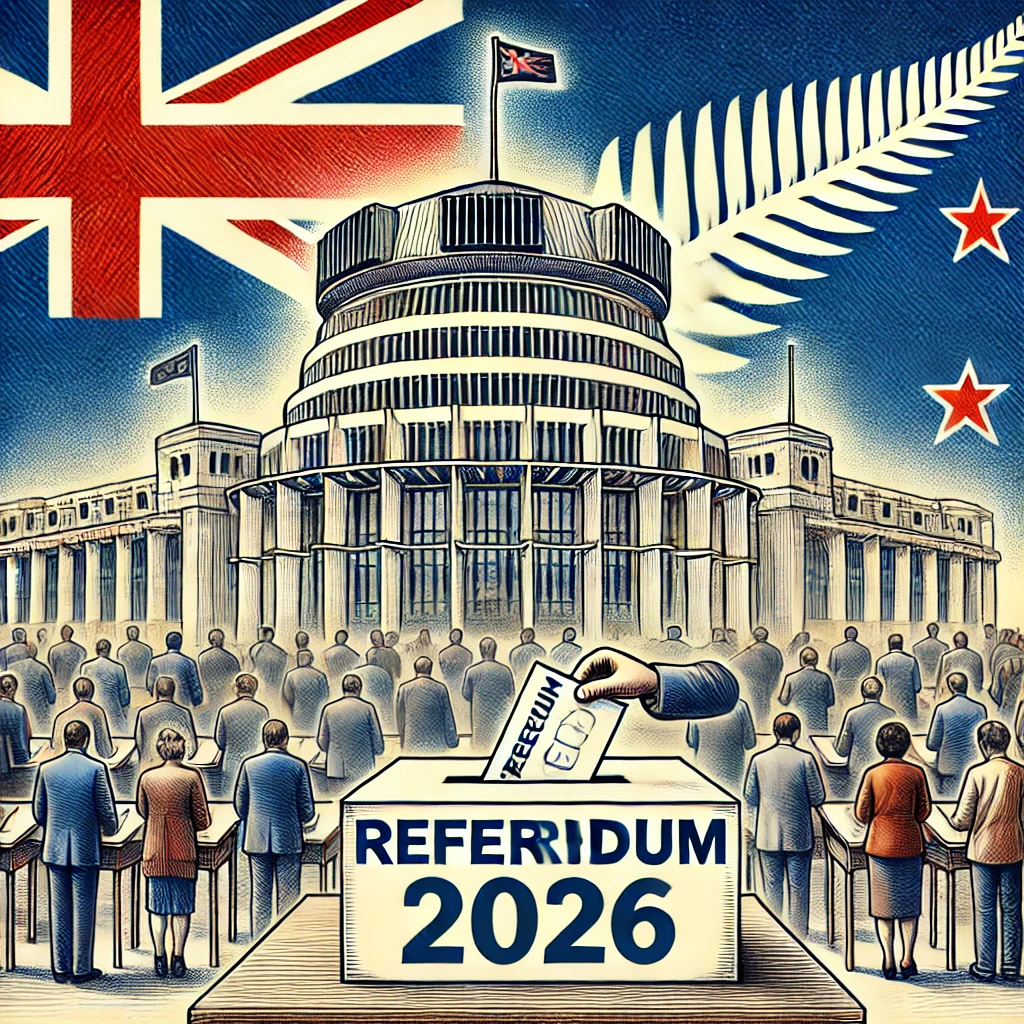New Zealand Unveils Major Electoral Law Reforms Ahead of 2026 Poll
Justice Minister Paul Goldsmith announced the legislative changes, saying they are necessary to modernise the system and ensure the integrity and timeliness of future elections.

- Country:
- New Zealand
In a sweeping overhaul of New Zealand’s electoral framework, the Government has introduced a series of reforms aimed at streamlining election administration, enhancing transparency, and addressing long-standing inefficiencies. Justice Minister Paul Goldsmith announced the legislative changes, saying they are necessary to modernise the system and ensure the integrity and timeliness of future elections.
Ending Same-Day Enrolment to Reduce Counting Delays
One of the most consequential changes will see the abolition of same-day and late enrolments. Under the proposed law, voters will be required to enrol or update their enrolment details by midnight on the Sunday before advance voting begins. This gives the Electoral Commission at least 13 days to finalise voter rolls before election day.
“Allowing late enrolments, however well-intentioned, has placed too much strain on the system,” said Minister Goldsmith. “The final vote count used to take two weeks. At the last election, it took three. Without change, the 20-day statutory window to declare results may soon become impossible to meet.”
Goldsmith defended the new deadline, pointing to Australia’s federal election model where enrolments close 26 days before the election. “I have every confidence New Zealand can manage within a 13-day deadline,” he said.
Improving Advance Voting and Enrolment Processes
The Bill mandates a minimum of 12 days of advance voting for all future general elections. This ensures consistent nationwide access and helps disperse voter turnout over time, easing pressure on election day infrastructure.
Further improvements are also planned to make enrolling and updating details easier. Automatic enrolment updates will be enabled through data sharing with other government agencies. Postal requirements for enrolment communications will be removed, paving the way for faster, digital correspondence.
Tighter Rules Around Voting Day Activities
In a move aimed at curbing undue influence and clarifying existing legislation, the Government is introducing a new offence that prohibits the offering of free food, drink, or entertainment within 100 metres of a voting place during the voting period. This builds on existing restrictions known as "treating," which have historically caused confusion.
The offence will carry a maximum fine of $10,000 and is designed to reinforce the neutrality of the voting environment. “This change will make the rules crystal clear,” Goldsmith said.
Financial Disclosure and Electoral Integrity Measures
The threshold for disclosing the identity of political donors will rise from $5,000 to $6,000 to account for inflation. While the change is relatively modest, it reflects the government’s broader intent to modernise financial aspects of the electoral process without diluting transparency.
The Bill also reinstates a total ban on voting by prisoners, reversing recent legislative changes that had partially restored those rights.
Further Institutional Reforms and Constitutional Alignment
Other reforms in the Bill include:
-
Allowing the Electoral Commission to begin processing special votes earlier.
-
Increasing the number of Electoral Commission board members from three to up to seven, enabling broader governance and expertise.
-
Establishing a single deadline for all candidate nominations to simplify election administration.
-
Adjusting party registration rules and timelines to ensure consistency.
-
Providing more flexibility for contact information required in promoter statements.
In addition, the Government is introducing a separate bill to amend the Constitution Act 1986, ensuring the continuity of executive government during the post-election period. This will help prevent governance vacuums between the conclusion of voting and the formation of a new administration.
A Balancing Act Between Access and Integrity
Minister Goldsmith acknowledged the significance of the reforms but emphasised their necessity: “These are substantial changes, but they’re critical to ensure we can run elections that are both efficient and trusted. We’re making sure the system remains fit for purpose in a rapidly changing digital and social environment.”
The Electoral Commission will be tasked with an extensive voter education campaign in the lead-up to the next election to ensure all New Zealanders are aware of the new requirements, especially the changes to enrolment deadlines and voting day conduct.
With the 2026 election approaching, these reforms are expected to be implemented and tested soon. The Government argues they represent a balanced approach—protecting electoral integrity while preserving the accessibility and fairness that define New Zealand’s democratic tradition.










